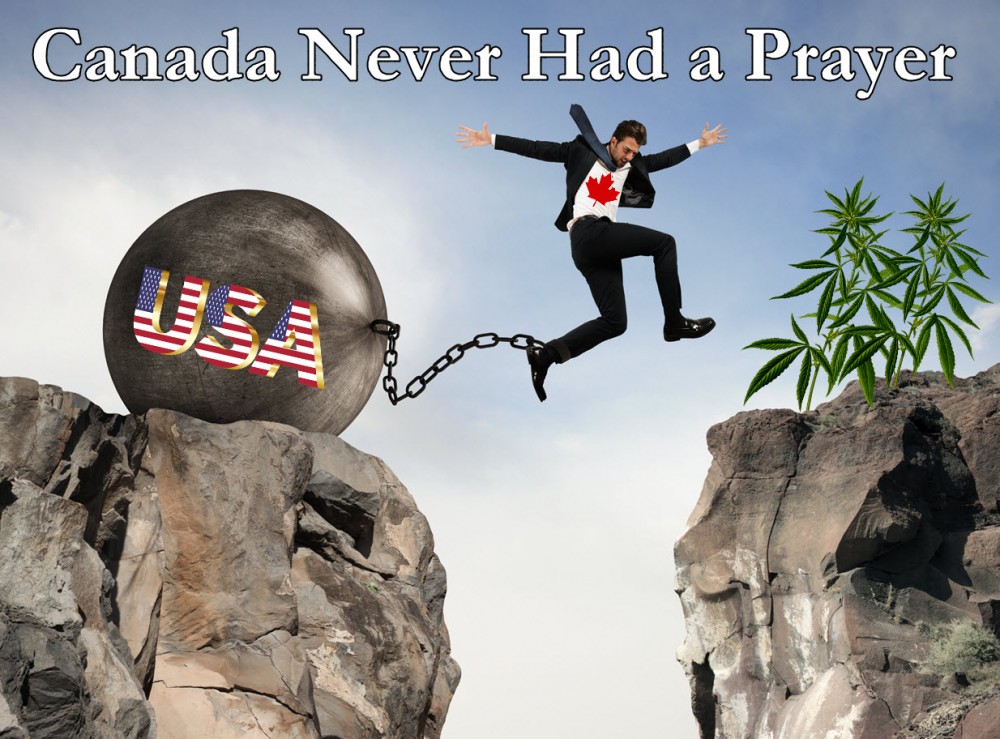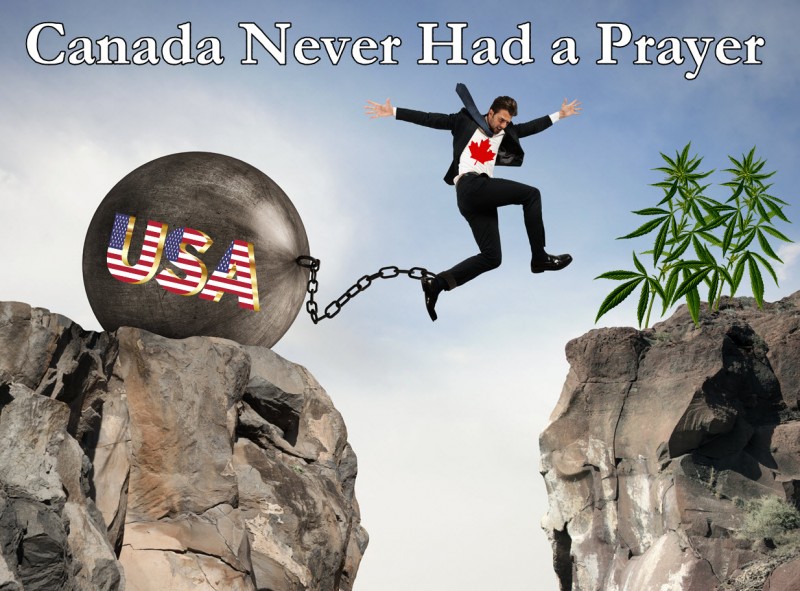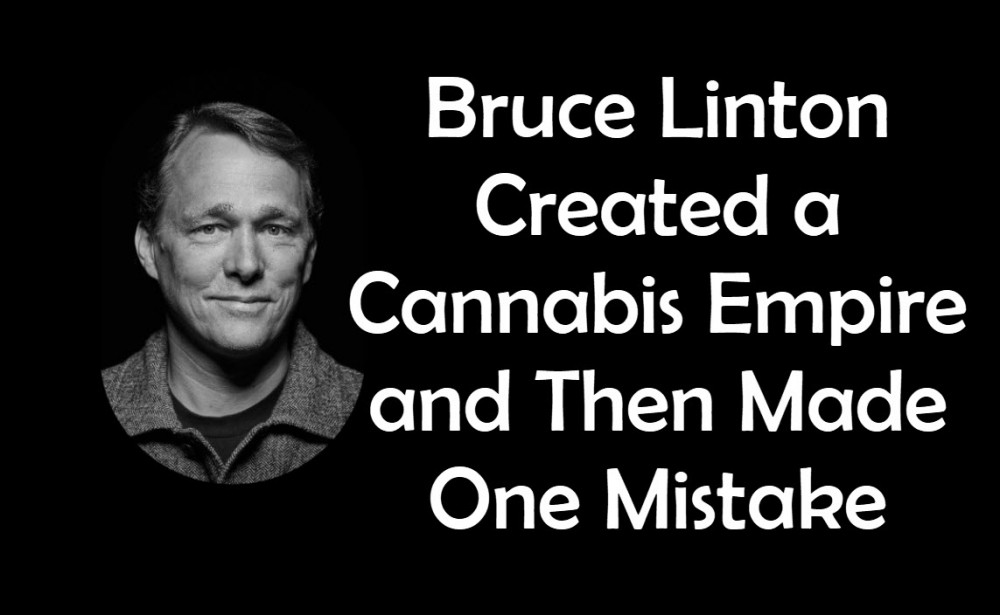Canadian Bac-On – Why Canadian Weed Never Had a Chance of Leading the World Cannabis Markets

A first mover advantage can count for a lot in a new and emerging market, very often it can determine the winners and losers in a market, but for cannabis and Canada, a first mover advantage was never going to be enough to become the worldwide leader in marijuana. Canada enjoyed the enviable position of being the first G7 country to legalize cannabis at the federal level, hence creating easy access to public funds and having the ability to scale much more quickly than other countries getting involved in marijuana.
So, where did it all go wrong for Canadian weed? Canada aspired to be the worldwide leader in cannabis and cannabis exportation, and as of today, they are, but they are a paper champion. A champion because no other country in its weight class has legalized cannabis yet. They enjoy a dominant position to the likes of Uruguay and Israel, but in the end, when the US changes its cannabis scheduling and the UN then adjusts their drug treaties to exclude marijuana, Canada will be left in the dust.
What did Canada do wrong, or did they do anything wrong at all?
Ironically, Canada’s downfall and marijuana stock crash happened due to the same reasons US cannabis companies can’t get public funding and ramp up to international giants, the US drug laws and how they relate to the UN, and the rest of the world.
Why was Canada never really a threat to take over the international cannabis trade to begin with, let’s go over a few facts.
One, Canada “only” has around 37,000,000 people in the entire country that covers almost 3.9 million square miles. While that may sound like a lot of people, to put it in perspective, the state of California has 39,000,000 people. Even with a small exodus of people from California due to high tax rates, the single state has over 2 million more people than the entire country of Canada. Canada just doesn’t have enough people to consume all the cannabis it grows, and due to Canadian taxes on legal cannabis purchases, over 70% of all cannabis sold in Canada is still done on the black market according to the most recent estimates. Canada doesn’t have enough people to begin with and those that are using cannabis, 7 out of 10 are using friends, family, and the Internet to buy weed, not legal retail locations.
Two, Canada’s gross domestic product, or GDP, comes in about 10th in the world, at a per capita income of around $46,000. That by no means is “bad”, but again, to put it in perspective, if the state of California was its own country, it would rank as the 5th largest GDP in the world ahead of the likes of India and Germany. Its per capital income is around a whopping $76,000 per person, but in a high tax rate state like California, that is not as much as it seems.
The moral of the story is that in absolute terms, Canada just doesn’t have enough people and can’t create enough money to be a worldwide powerhouse in cannabis.
Third, current US drug laws are a harsh reminder on how much political and financial influence the US still has on the rest of the developed world. As the US goes, so does the world, as the saying goes, and this is no truer than in the United Nations. The UN drug treaties are the international drug policies that hundreds of nations have signed on to in order to create a worldwide agreement on drug trafficking and what is illegal and legal to ship and transport among nations. The current US statue for cannabis is a Schedule 1 felony drug, and until that is changed, not many nations will change their own cannabis policy for fear of US backlash. Canada and Uruguay are two exceptions right now, with countries like Australia, Mexico and Columbia moving quickly to develop a legal cannabis grow market, but in general, no one wants to risk the ire of the US over a small thing like cannabis right now. Will cannabis be a trillion-dollar worldwide market someday? Yes, but until the US gives it’s blessing to start international trade, only a few outliers will take the plunge, break the drug treaties, and start growing and shipping cannabis around the world.
If the US federal government wanted to, they could threaten sanctions, remove access to the SWIFT bank wire system, and even remove countries’ US dollar accounts at the US Federal Reserve of countries that break from international marijuana laws at the UN. Is that farfetched, yes, but not many people want to go down that road and test the US with this current president on such a trivial matter of cannabis right now.
Fourth, Canada has grown way too much cannabis for their own needs and their current export needs. At last count, Canada had over 100 tons of excess cannabis that they can’t get rid off right now. This leads to depressed prices and many suppliers just trying to get rid of it and get “something” back for their plants. In a way, Canada is just a much bigger version of Oregon’s problems of a few years ago, with a massive oversupply of cannabis that could not be shipped or transported across a state line. Only Canada, is a geographically HUGE country with millions of miles of wilderness and forest to house illegal grow sites, certainly not as easy to police and shut down as it would be in a US state like Oregon.
Right now, due to US financial sway and cannabis laws, Canada is stuck with limited access to international public markets and funding, a huge oversupply of cannabis, and just not enough people to consume it. Competition is fierce among legal retailers, websites, and grey and black-market providers as prices drop and demand slows down. Yes, there are some contracts that allow the bigger, public, Canadian cannabis producers to ship cannabis to places such as German and Israel, but this is just a drop in the bucket needed to fill the demand-side volume needed at this point.
Until US drug laws change around cannabis, leading to UN drug treaty changes, there just want be enough countries on that list to sop up excess Canadian demand from the legitimate market. Keep in mind all these countries that could be good trade partners also have their own marijuana black-markets and with more social acceptance around the plant, black markets are getting bigger and more daring in those places as well. For example, traditionally stringent societies such as Philippines and Thailand are legalizing cannabis for medical conditions as well as allowing all residents to grow it and sell it back to the government.
The other problem is that by the time these laws are changed it may be too late for Canada to become a dominant world player due to labor costs and transportation costs. Many South American and East Asian countries have a long history of growing cannabis and have much lower labor and electrical costs than Canada. The prices of high-quality cannabis to go from Thailand to Australia will be much cheaper than from Canada to Australia down the road. Mexico, Vietnam, Brazil, Argentina, and others will be able to pay works pennies on the dollar to grow and produce cannabis compared to the US and Canada.
As the plant becomes a commodity around the world over the next decade, think tomatoes, lettuce, broccoli, it will much harder for brands and countries to justify a higher price for “their” cannabis. Local markets will have to make up for the difference, and again, competition will be fierce among legal suppliers and gray and black-market suppliers.
Is this all breaking news to Canadians? Not at all, Bruce Linton, former CEO of Canopy Growth, was well aware of these facts and knew he had to “get out of Canada and into America” in order to his is numbers and goals that Wall Street had put on his company.
Will things look better in the future for Canada if the laws change? Not really, bigger whales will enter the market and be able to scale to size quicker than Canada could with full legalization. For example, the US stock market has rough market value of $30 trillion dollars, that money will be unleashed on cannabis once the Federal law changes. The market cap of the Canadian stock market is about $3.2 trillion, so the US alone, not counting the likes of Japan, Germany, and China, is 10x the financial size of Canada.
What can Canada do?
Build a national brand, or national brands, that will command higher prices and consumers will pay more for around the world. In the same way people will pay up for Emerald Triangle weed, consumers need to be taught why Vancouver or PEI cannabis is special and why they should pay a premium for it. Do you like tomatoes or sun grown tomatoes from California? If Canadian brands can build up a quality wall around their cannabis, they will be able to export around the world, just not at the volume they need to make everyone in Canada profitable.
A great example of this strategy is what Jamaica is going to have to do in order to be a world brand. A small Caribbean island has no shot competing with the likes of Mexico, Canada, and the US on volume and shipping, but if you can build out a story around the history of Jamaican weed, Bob Marley, and the dark, volcanic soil that Jamaica grows its cannabis in, well then, you may entice people to pay a premium for cannabis from Jamaica.
Canada may be much larger than Jamaica, but Wayne Gretzky Kush and Seth Rogen’s Houseplant may be your best bets for worldwide market share.
CANADIAN CANANBIS MARKET NEWS, READ MORE...
BRUCE LINTON BUILT THE FIRST CANNABIS EMPIRE, THEN GOT FIRED.
OR..
WHAT IS SETH ROGEN'S HOUSEPLANT BRAND DOING NOW?







